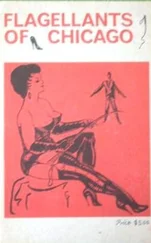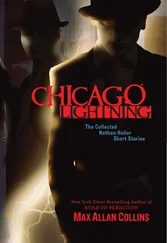She moved slightly, as if objecting, which aroused him even more. He tightened his grip on her arm and said in a hoarse voice, “I’ll make you the happiest woman in the world.”
“And if I refuse?”
“You won’t refuse.”
“How do you know?”
“Because you’re intelligent.”
“I need to think.”
Safwat looked at her, frowning and beginning to breathe heavily with desire for her. But he pulled himself together and said as he moved away: “You have until tomorrow.”
MARWA WAS NOT SHOCKED OR confused. She felt neither resentment nor anger. On the contrary, she felt some relief, as if she were an investigator who had finally found uncontestable evidence to get a conviction. There she was: absolutely certain of the truth; no more doubts and no hesitation from now on. Safwat Shakir wanted her to be his mistress: he had said it explicitly. She went home and sat in the living room waiting for Danana, who as soon as he saw her realized that something had happened. He greeted her and then said with an exaggerated yawn in preparation for an escape, “I spent the whole day working very hard.”
“I want to talk to you.”
“Let’s postpone it until tomorrow.”
“It cannot be postponed.”
She told him what had happened, taking her time, clearly enunciating Safwat Shakir’s words. She fixed him with a strong glance as she said, “Can you imagine how low! The one you considered your friend wants to sully your honor.”
Danana was sitting in front of her, still in his street clothes. He kept staring at her through his glasses then threw his hands up in the air and said, “There is no power or strength save in God. What an indecorous man!”
Marwa was not convinced by what she understood to be a feigned expression of disgust, so she asked Danana in a loud voice,“So what are you going to do?”
“I will hold him to account, of course, and I’ll be tough on him.”
Moments of silence passed. He suddenly got up and sat next to her, placed his hand on her shoulder, and said, “I’ll make him pay the price for his ignominy. I will get word of what happened to his superiors. But we have to be a little patient because the president’s visit is taking place in a few days and Safwat promised to get me enrolled at DePaul.”
“What do you mean?”
“We don’t want him to create difficulties.”
“He said to me explicitly that he wanted to have a relationship with me. Do you understand?”
“Of course I understand. I will teach him a lesson that he won’t forget. You’ll see for yourself. All I am asking is that we wait just one month, no more. If I anger him now, he can destroy me with the stroke of a pen. I’ll just give him time until the president’s visit is over and he enrolls me in the other university. Then we settle the account.”
She fixed him with a slow, probing look, as if recording what was happening, etching it deep into her consciousness once and for all. She didn’t say anything but got up slowly, went into the bedroom, and closed the door.
That morning the Egyptian consulate building looked different, as if it had acquired a mythical dimension, as if a magician’s wand had changed it from a merely elegant building overlooking Lake Michigan into a stage for major events that would be recorded by history. Security preparations started early: the building was examined by high-tech equipment that X-rayed the walls to make sure no foreign substances were embedded within them. Shortly after that ten large police dogs toured the building sniffing everywhere for any hidden explosives. In the meantime, a group of Egyptian sharpshooters, carrying their long-barreled rifles fitted with telescopes, climbed onto the roof, accompanied by another group of Republican Guard officers armed with automatic rifles. They took their positions in different places, covering the area surrounding the consulate from all directions. After a short while, four metal detector gates were set up, two in front of each of the entrances in such a way that every person coming in would be checked twice. About ten meters before these gates, checkpoints manned by FBI agents together with Egyptian intelligence and State Security were also set up.
As invitees began to arrive, they were checked very thoroughly: Americans’ invitations were checked by a laser machine to make sure they were not forged. Egyptians, of course, were subjected to additional measures: their passports were scanned on a special laptop to make sure they did not have security files. After that the Egyptian security officer would ask them, with a formal smile and a scrutinizing gaze, about details of their lives. If he noticed the slightest confusion or contradiction in their answers they would be escorted to an office for more elaborate cross-examination. The security procedures were strict and, like justice, blind, and were imposed on everyone regardless of profession or social standing, so much so that the man in charge of the cafeteria at the consulate, an old black American named Jack Mahoney, was not allowed to enter because he had forgotten his special pass. For a whole half hour the officers turned a deaf ear to his pleas to prove his identity despite his colleagues vouching for him. In the end he had to go back home — quite a distance away — to collect his pass.
Egyptian security men were profoundly aware of the serious and lofty nature of their task: ensuring the personal safety of the revered president. They loved him with all their hearts and pronounced his name reverently and prayerfully. Had it not been for their closeness to him, they wouldn’t have enjoyed their cushy lives and tremendous influence on all departments of the state. They were so linked to him that what happened to him determined their future. If something bad, God forbid, were to happen to him, if he were assassinated like his predecessor, they’d be lost. They’d be pensioned off or cashiered. They might be put on trial and sent to jail if power passed on to the president’s enemies, who were quite numerous. All these apprehensions would prick them like needles if they felt any relaxation or boredom, so they would immediately regain their enthusiasm. Absolute loyalty to the president was embodied in the person of General Mahmud al-Manawi, commander of the Republican Guard, who had spent a whole quarter century close to him and which made him one of the few who enjoyed the president’s full trust. It also made him entitled to be on the receiving end of the president’s sometimes obscene jokes. Sometimes when the president was in a good mood, he would pat the general’s protruding paunch and say in a loud, laughing voice, “Stop eating, Manawi boy! You look like Apis, the bull!”
Or he would shout derisively, “It seems you’ve given up on the plow, Manawi boy!” (In a reference to dwindling sexual prowess with age.)
When that happened, General Manawi would blush at the great honor he received. Many would envy him that humor, because it was a mark of trust and love from the president. He would bow and mumble in a prayerful voice, “At your service, sir. May God give you long life for the sake of Egypt, sir.”
While security procedures were in full swing, a few hundred Egyptians led by Nagi Abd al-Samad and Karam Doss together with John Graham gathered in front of the consulate in the green space close to the lake. The appearance of Graham in the middle of the group, with his natural charisma, being an old American who came to fight for the rights of Egyptians, galvanized the demonstrators, who kept shouting slogans and waving signs in English and Arabic: free the detainees, stop the torture, stop persecuting the copts, down with the tyrant, and democracy for egyptians.
Demonstrations against the president during his visits in the West were familiar to the Republican Guard officers. This time, however, they noticed that there were large numbers of demonstrators and that they were making a lot of noise. That caused General Manawi some concern, so he went to the head of the American security detail and asked him for permission to disperse the demonstration. The latter told him, “American law prohibits dispersing them.”
Читать дальше
Конец ознакомительного отрывка
Купить книгу












